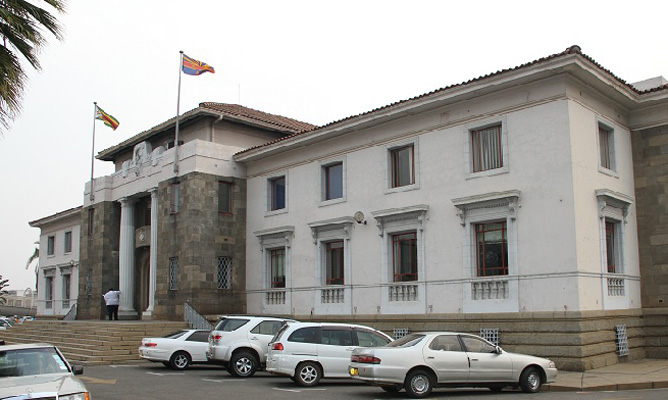
THE Harare City council last year engaged in a rationalisation programme spearheaded by the human resources committee chaired by councillor Wellington Chikombo. The process led to thousands of job losses, including that of former town clerk Tendai Mahachi.
NewsDay municipal reporter Moses Matenga (ND) yesterday spoke to Chikombo (WC) on the controversies surrounding the programme, among other issues his committee has dealt with.
ND: You were chairman of the human resources committee at a time tough and controversial decisions were made. How did you manage amid such opposition and hostility?
WC: As rationalisation unfolded, as ever, I imagined the families, the knock on the door, the grieving wife, the child of a jobless father, the sheer tragedy of it all. To be indifferent to that would be inhuman, emotionally warped. But it is not that accusation that causes the anguish.
The anguish arises from a sense of sadness that goes beyond conventional description or the stab of compassion you feel on hearing the news of termination of people’s contracts.
I can’t regret the decision to go for rationalisation. But the notion of “responsibility” indicates not a burden discharged but a burden that continues. Regret can seem bound to the past. Responsibility has its present and future tense.
I cannot, by any expression of regret, bring back to work those who were retired and retrenched, but I can dedicate a large part of the life left to me to that wider struggle, to try to charge it with meaning, purpose and resolution, and my responsibility intact and functioning, in, however, small or large a way.
- Chamisa under fire over US$120K donation
- Mavhunga puts DeMbare into Chibuku quarterfinals
- Pension funds bet on Cabora Bassa oilfields
- Councils defy govt fire tender directive
Keep Reading
This responsibility entails to act in leadership representing the best interest of our residents.
ND: How did the programme benefit council?
WC: On organisational transformation, we managed to reduce the total number of directors from 13 to six.
We reduced the total number of senior manager positions from 45 to 35 and reduced the council total establishment from 10 610 to 9 721.
We reduced council monthly wage bill by $1 278 806,34 and the annual wage bill by $15 348 676.
ND: What went through your mind as you sent thousands of people home and onto the streets?
WC: The rationalisation was the most nailbiting, discombobulating, courage-drainage, bowel moving experience of my time as the chairman, but it was indeed a process that had to be undertaken.
ND: The Tendai Mahachi issue is also surrounded with a lot of controversy. How far true is it that it was personal, as MDC-T councillors felt threatened by him?
WC: The rationalisation we adopted in 2014 entailed that our employees will be retired at 55 years of age (early retirement) 60 years retirement age and Mahachi is one of those candidates who fitted in that category.
He is enjoying the services of council at home as a senior citizen.
ND: And how is your working relationship with mayor Bernard Manyenyeni and how was it with the late deputy mayor Thomas Muzuva?
WC: My relationship with the mayor is very good. He is cool, calm, very good under pressure and creative too.
My personal relationship with the former deputy mayor . . . he was a difficult man. Yes, sometimes utterly maddening, but he was a real leader. A big man in every sense.
Really tough, uncompromising, and if he didn’t want to be moved, [he was] unmovable.
Someone who took no nonsense from anyone, including his own supporters.
He was capable, strong and brilliant and those were qualities for which I never lost respect. I really liked sharing my proxemics with Thomas.
ND: There has been a lot of indiscipline by council workers. How have you dealt with that?
WC: We dealt with 150 cases and 118 of those were finalised. There is now improved conformance to the code of conduct.
ND: You had issues as a committee with council officials who used their political muscles and were paid, but not coming to work like Jim Kunaka. How did you manage to deal with him?
WC: We dealt with him not as a political figure, but a council employee who was misbehaving and we managed to bring that to a halt.












